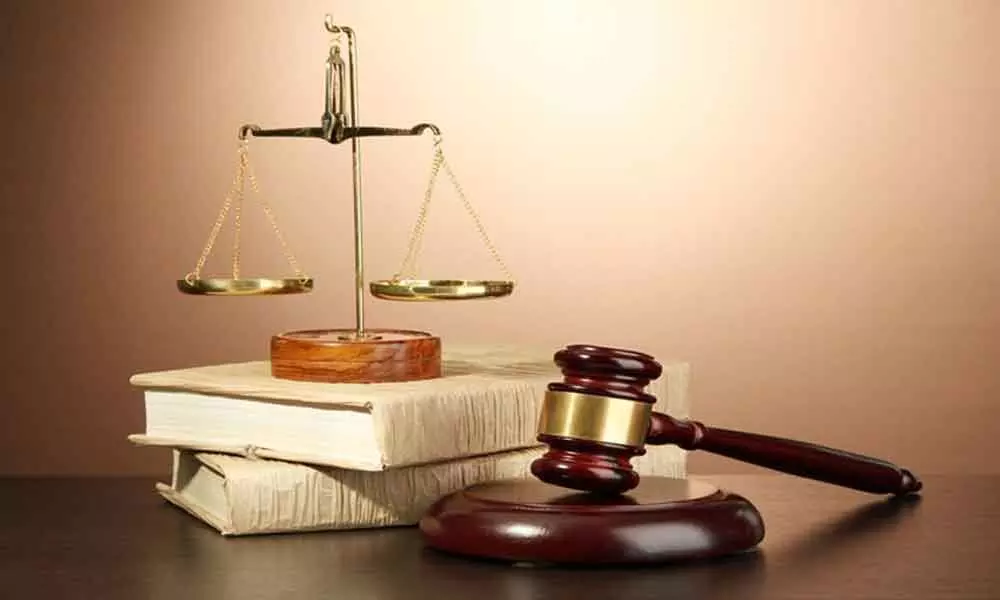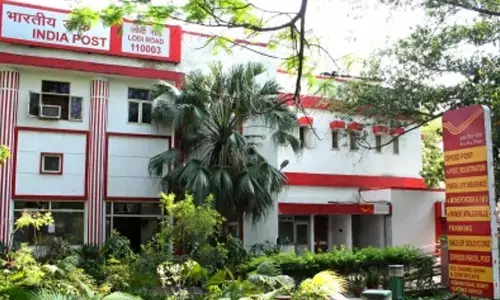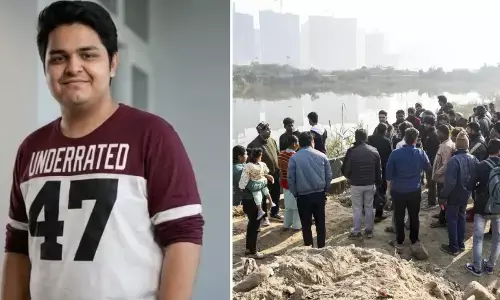Has HC interfered with AP Assembly?

Force, the only remedy to set right incorrigibles!
Grumbling over the power of Judicial Review
Has the AP High Court exceeded the jurisdiction? Andhra Pradesh Assembly expressed agony that the High Court exceeded its limits and interfered with Assembly powers. AP High Court in umpteen number of cases, including the latest case on three-capitals law of AP Government was beyond the authority given to under the Constitution.
For the first time, the Assembly debated the judgement of the High Court for a long time and the Chief Minister echoed the views of YSRCP and its legislators and emphasised his governments policy for three capitals. The debate was constructive as members showed restraint in their language, views and references. The House was calm and quite unlike the routine and regular pandemonium in recent times. This question was debated by almost all media platforms in the two Telugu states. Assembly led by Jagan Mohan Reddy, the Chief Minister, raised serious criticism against the High Court on three points: 1. It exceeded its limit; 2. How can High Court say that Assembly has no authority to legislate?; and, 3. It is not possible to implement the Judgement.
Is the Assembly constitutionally right in severely criticising the Amaravati Judgment of High Court? The answer to this question lies in Article 211 of our Constitution: No discussion in Assembly about the conduct of a judge of High Court or Supreme Court.
Assembly did not discuss the conduct of judges, but the judgement on the law passed by the Assembly was analysed. There is nothing wrong in analysing the judgement on their law and expressing their opinion. Moreover, the entire judgment was an analysis of the power of Legislative Assembly in comparison with that of the Parliament as far as the State reorganisation is concerned. Article 3 gives plenary power to Parliament to decide the boundaries and other important aspects of states formed out of division.
Assembly Criticism: The judiciary was "crossing its domain and trespassing into the state government's legislative terrain of making laws" – CM Jaganmohan Reddy. Courts should not interfere in the functioning of the legislative system – Dharmana Prasada (MLA, YSRCP).
Constitutional position: When a constitutional court reviews the legality of the law made by legislature, and holds it is not constitutional, it cannot be called interference.
Assembly Criticism: The systems of judiciary, executive, and legislative systems should operate only within their domains. "We chose democracy as a form of government and many great people were behind the making of the Indian Constitution," said AP CM.
Constitutional position: Correct. Amaravati High Court's judgement holding the law to repeal CRDA Act, as wrong is within the limits prescribed by the Constitution.
Assembly criticism: AP High Court's remark that "a change in government need not give rise to a change in policy," and stressed that "it is the people's mandate that has brought in the legislators to make laws, which no other domain can do" – AP CM.
Constitutional Position: Government is continuous institution. Commitments by Government continue irrespective of huge victory in democratic process of elections. Even if a party gets 100 per cent seats, its lawmakers cannot make statute against the provisions of the Constitution. The Constitutional court has power to decide whether such law is constitutional or not. The policy can be changed, but the continuity in commitment cannot be dropped.
Assembly Criticism The courts cannot run the government and judges cannot legislate. He reminded one and all about the dictums given by the Supreme Court on earlier occasions, saying "Judicial activism can act as an unguided missile."
Constitutional Position: That is true. Judges cannot legislate, but they can scrutinise the legality of law by legislature. They cannot run the government, but they have to remind the commitments to be fulfilled when a citizen brought that issue to them. Judicial activism is something that happens in public interest litigation. But the Amaravati Judgement was on a writ petition which is not PIL but a challenge to the law made repealing earlier law.
Assembly criticism: Opposition leaders trashed the concept of decentralisation and the three capitals issue for the sake of political gains by dragging the matter into legal tangles. (Kolusu Parthasarathy MLA, YSRCP).
Constitutional Position: That is political criticism. Whether a citizen belonged to opposition party or not, has a right to challenge the decision. Questioning the constitutionality of a law is not 'dragging the matter into legal tangle.' It is the constitutional right of the citizen to secure rights promised by law like AP Capital Region Development Authority Act.
Assembly Criticism: CM termed "impossible" the six-month deadline set by the AP High Court for the government to develop Amaravati as the state's only capital.
Constitutional position: It is a dynamic issue that the government should have sufficient time to complete the development task. The CM is right in saying the time limits fixed by Court are arbitrary and not practically possible. But it was promised by law by the government earlier which this government also should feel responsible to implement. It is in that context six months might have been fixed. However, the government has every right to approach the High Court seeking extension of time, as the Court considered it as an issue of continuous mandamus. Even if any person files contempt petition for non-completion within the limit, the court will have a duty to hear the difficulties in implementation, before deciding the case or penalizing the responsible.
Assembly Criticism: YSRCP government is "committed" to its earlier plan of decentralisation of administration, and is also "exploring legal options. If we are told that we cannot even pass a resolution on decentralisation of development, the line is crossed…," – AP CM
Constitutional position: Two points are correct. AP government can explore legal options. Secondly, it can pass any resolution for decentralization, and nowhere it was stated that it cannot. The government has to explore the legal options to implement its policy. The Constitution by Article 3 gave the power to Parliament to create new state and decide related thinks exclusively.
Section 5 of the Reorganisation Act stipulated that Hyderabad would act as a common capital for a period of ten years. Section 5(2) stipulated that after that period, "Hyderabad shall be the capital of the State of Telangana and there shall be a new capital for the State of Andhra Pradesh." Further, under Section 30, common capital continues until the President of India notified the principal seat of the AP High Court under Section31(2). Section 6 obligated the Central Government to constitute an expert committee to study various alternatives for the new capital AP.
Sections 94 (3) & (4) foisted an obligation on the Central Government to provide special financial support for the creation of essential facilities in the new capital of the successor State of Andhra Pradesh including the Raj Bhawan, High Court, Government Secretariat, Legislative Assembly, Legislative Council, and such other essential infrastructure to facilitate the creation of "a" new capital for the successor State of Andhra Pradesh.
The 2014 Act enabled the AP government to decide its choice of capital, which was exercised by TDP government and a law is passed to develop Amaravati as its capital city. The then opposition party YSRCP neither opposed it in Assembly nor challenged it in the Court of law. Then, the Supreme Court advised the President to set up a High Court at Amaravati, which was done accordingly by Presidential notification. Hence, with the intervention of Parliament, AP Legislative Assembly, AP High Court, Supreme Court and the President of India, which means the Union government, Amaravati was established as capital.
The CRDA Act has given statutory form to the agreements with the farmers who surrendered their agricultural fields. These acts made the change in capital decision impossible. The High Court found that the power to change administrative related affairs regarding the separate state born out exercise of power of Parliament under Article 3 is vested in Parliament only and not in Assembly. This is the basis of the decision striking down the three-capital law that repealed AP CRDA Act.
The government can decide whether they should approach Parliament to provide for three capitals or seek review of the judgement of AP High Court by appealing to the Supreme Court.
(The author is Dean & Professor, School of Law, Mahindra University, Hyderabad, and former Central Information Commissioner) (The opinions expressed in this column are those of the writer. The facts and opinions expressed here do not reflect the views of The Hans India)
















